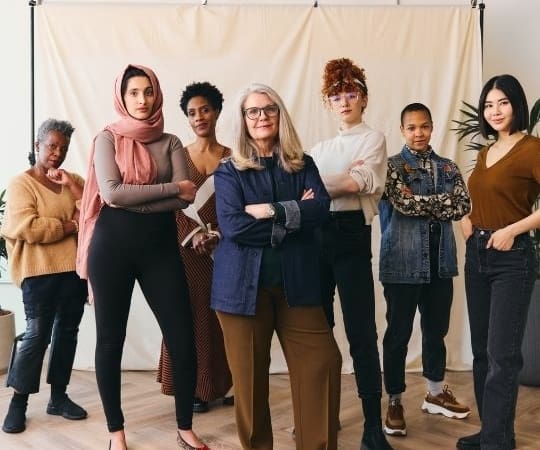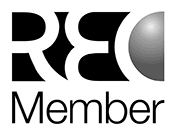International Women’s Day is a day to celebrate the achievements and contributions of women worldwide, as well as to advocate for gender equality and women’s rights. It is important for all women, including lesbian and trans women, to be highlighted on this day for several reasons:
- Inclusivity: International Women’s Day should be a day that celebrates the diversity of women’s experiences and identities. Lesbian and trans women are an integral part of the global community of women, and their contributions and struggles deserve recognition and support.
- Visibility: Highlighting lesbian and trans women on International Women’s Day helps to raise awareness about the challenges and discrimination they face due to their gender identity and sexual orientation. Increased visibility can lead to greater acceptance and understanding within society.
- Intersectionality: Recognising the intersectionality of gender with other aspects of identity, such as sexual orientation and gender identity, is crucial for achieving true gender equality. Ignoring the experiences of lesbian and trans women would be overlooking a significant aspect of the broader struggle for women’s rights.
- Solidarity: International Women’s Day is a day for women to come together in solidarity to advocate for gender equality and women’s rights. By highlighting the experiences and voices of lesbian and trans women, the women’s movement becomes more inclusive and powerful.
- Representation: Representation matters. When lesbian and trans women are included and represented in International Women’s Day celebrations, it sends a message that all women are valued and respected for who they are.
Overall, recognising and highlighting the diversity of women’s experiences, including those of lesbian and trans women, strengthens the women’s rights movement and promotes a more inclusive and equitable society for all.
Lesbian and trans women often face unique challenges compared to cisgender women due to the intersectionality of gender identity, sexual orientation, and other factors.
- Discrimination and Stigma: Lesbian and trans women may face discrimination and stigma based on their sexual orientation and gender identity. This can manifest in various forms, such as employment discrimination, housing discrimination, and social exclusion.
- Violence and Hate Crimes: Lesbian and trans women are at an increased risk of experiencing violence and hate crimes due to their intersecting identities. Transgender women, in particular, face high rates of violence, including physical assault, sexual assault, and murder.
- Healthcare Access: Lesbian and trans women may encounter barriers to accessing healthcare, including discrimination from healthcare providers, lack of culturally competent care, and challenges in accessing gender-affirming healthcare services.
- Legal Recognition and Rights: In many places, lesbian and trans women may face legal barriers to recognition and protection of their relationships, parental rights, and gender identity. Laws and policies may discriminate against them or fail to provide adequate protections.
- Family Rejection: Lesbian and trans women may experience rejection and discrimination from their families and communities due to their sexual orientation or gender identity. This can lead to strained family relationships, homelessness, and mental health challenges.
- Employment and Economic Inequality: Lesbian and trans women may face employment discrimination, wage disparities, and barriers to career advancement due to their intersecting identities. This can contribute to economic insecurity and financial instability.
- Mental Health Challenges: Discrimination, stigma, and social exclusion can take a toll on the mental health of lesbian and trans women, leading to higher rates of depression, anxiety, and other mental health disorders.
- Intersectional Discrimination: Lesbian and trans women of colour, disabled lesbian and trans women, and other marginalised groups within the LGBTQ+ community may face compounded discrimination and marginalisation due to intersecting factors of race, disability, and socioeconomic status.
Overall, the challenges faced by lesbian and trans women are multifaceted and require intersectional approaches to address effectively. Recognising and addressing these challenges is essential for advancing gender equality and promoting the well-being of all women.
Trans and lesbian women may face varying degrees of discrimination and challenges depending on the country and its cultural, legal, and social contexts. Russia, Poland and Uganda have all implemented laws that target the LGBTQ+ community, such as the infamous “gay propaganda law” which restricts the promotion of non-heterosexual relationships. Transgender individuals may face significant legal and societal barriers, and violence against LGBTQ+ individuals is not uncommon. Iran, Saudi Arabia and others have criminalised homosexuality and can be punishable by the death penalty with severe societal and legal discrimination. Countries like Honduras have high rates of violence against LGBTQ+ individuals, with trans women facing particularly high levels of violence and discrimination. Many cases of violence against LGBTQ+ individuals, including murders, go unpunished.
It’s important to note that discrimination and violence against LGBTQ+ individuals can occur in any country, and efforts to promote equality and human rights must be ongoing and global.
In Western countries, while there have been significant advancements in LGBTQ+ rights and acceptance in recent years, trans and lesbian women still face discrimination and challenges in various forms. Despite legal advancements such as marriage equality and increased visibility of LGBTQ+ individuals in media and politics, discrimination against trans and lesbian women persists. Transgender individuals, in particular, face high rates of violence and discrimination, including barriers to accessing healthcare and legal recognition. Additionally, efforts to restrict transgender individuals’ rights, such as bathroom bills and restrictions on gender-affirming healthcare, have been proposed. Hate crimes against LGBTQ+ individuals, including trans and lesbian women, remain a concern in some areas.
Overall, while Western countries may provide more legal protections and societal acceptance for LGBTQ+ individuals compared to some other regions, trans and lesbian women still face discrimination, violence, and challenges in various aspects of their lives. Efforts to promote equality and inclusion for all LGBTQ+ individuals, including trans and lesbian women, are ongoing despite fierce opposition.

How Innovation in Fragrance Is Reshaping the Scent Industry

How Luxury Beauty is Evolving in 2025 with High-End Brands Leading the Way



